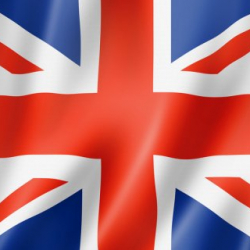
HELLO!

Прямая речь или direct speech – это непосредственно реплика какого-либо человека, произнесенная им. Такие слова всегда берутся в кавычки, а перед прямой речью ставится запятая.
Lucy says, «I have good health».
Люси говорит: «У меня крепкое здоровье».

Косвенная речь или indirect speech передается собеседником не слово в слово, как прямая, а с использованием придаточных предложений. При этом кавычки и запятая уже не употребляются.
Nick said that he would buy a ticket to Egypt tomorrow.
Ник сказал, что купит билет в Египет завтра.

Как сделать грамотный перевод в косвенную речь?

- После вводных слов ставим союз that. Кстати, хоть это и считается правилом, но его нарушение не будет ошибкой. В отдельных случаях вы можете использовать косвенную речь и без союза that.
- В главной части предложения временная форма сохраняется в неизменном виде, а вот в придаточной части работает правило «шага назад» или так называемое правило согласования времен. Оно гласит, что при переводе прямой речи в косвенную, время в предложении меняется на то, которое ему предшествует.
- Глагол to say меняем на to tell, если это больше подходит по смыслу.

Согласование времен

Present Simple
Past Simple
Examples
Maria said, «I go home from school at 2 P:M on Mondays.
Maria said that she went home from school at 2 P:M on Mondays.

Present Continuous
Past Continuous
Examples
Alexandra said, «I am having a shower».
Alexandra said that she was having a shower.

Present Perfect
Past Perfect
Examples
Alexandra said, «I have lost my keys».
Alexandra said that she had lost her keys.

Present Perfect Continuous
Past Perfect Continuous
Examples
My friends said, «We have been studying Polish for 3 years».
My friends said that they had been studying Polish for 3 years.

Past Simple
Past Perfect
Examples
David said, «I passed my exam last week».
David said that he had passed his exam the previous week.

Past Perfect
Past Perfect
Examples
David said, «I had already finished my homework».
David said that he had already finished his homework.

Future Simple
Future in the Past
Examples
Robert said, «I will call you tomorrow».
Robert promised that he would call me tomorrow.


Let’s practice!

1) “I am planning to go to Kenya,” Sally said.
Sally said (that) she was planning to go to Kenya .
2) “I take my little sister to school every day,” Ben said.
Ben said (that) he took his little sister to school every day.
3) “I don’t like chocolate,” Mary said.
Mary said (that) she didn’t like chocolate.

4) “My mother usually goes shopping on Saturdays,” the girl said.
The girl said (that) her mother usually went shopping on Saturdays.
5) “The birds built their nests among the trees,” the teacher said .
The teacher said (that) the birds had built their nests among the trees.
6) “They are playing in the gym now,” Nick said.
Nick said (that) they were playing in the gym then.

7) “We have gone on holiday,” the girl said.
The girl said (that) they had gone on holiday.
5) “The Brows have travelled to many places,” Mary said .
Mary said (that) the Browns had travelled to many places.
6) “My dad has never travelled by plane,” Nick said.
Nick said (that) his dad had never travelled by plane.

THANK YOU FOR ATTENTION!




































